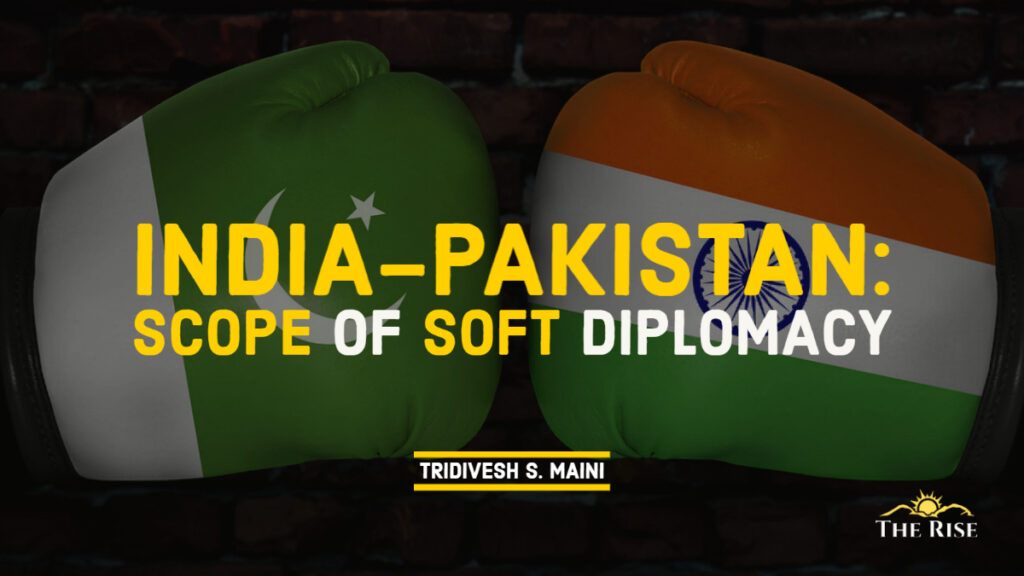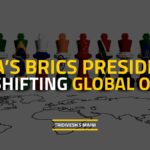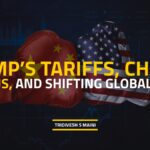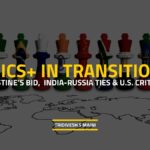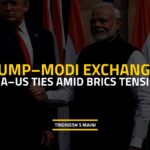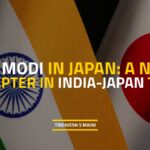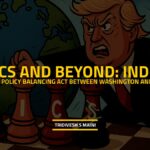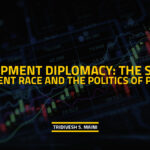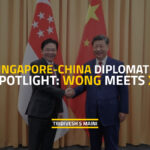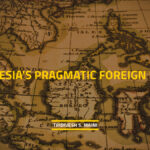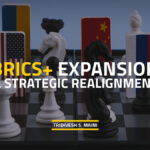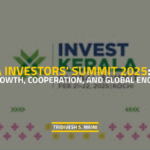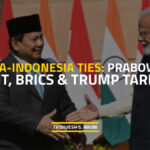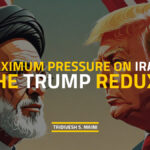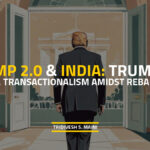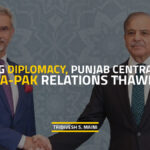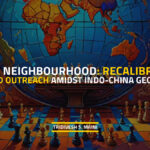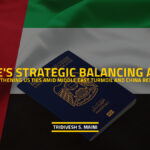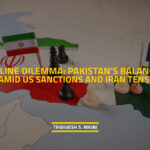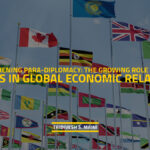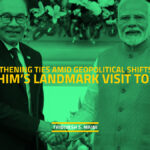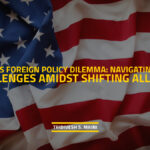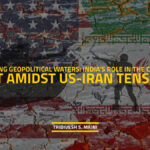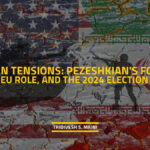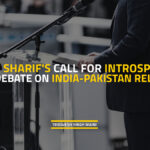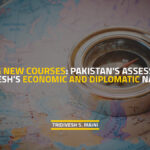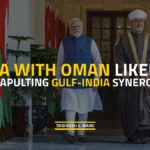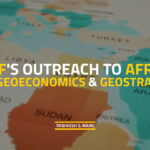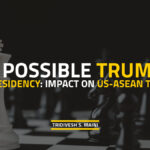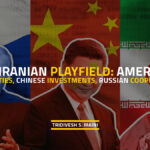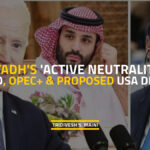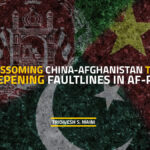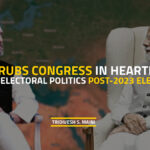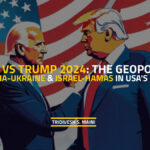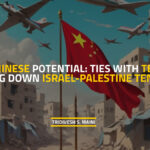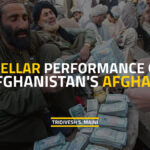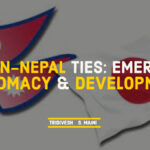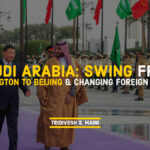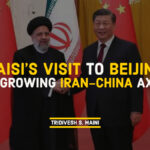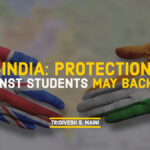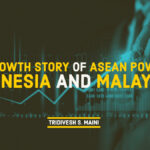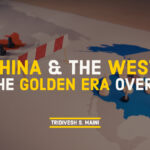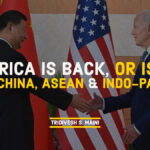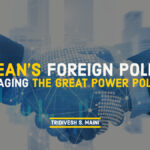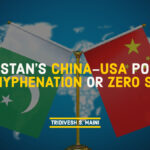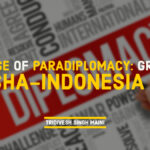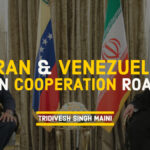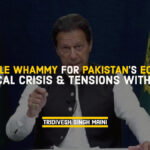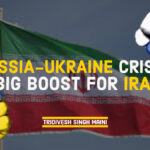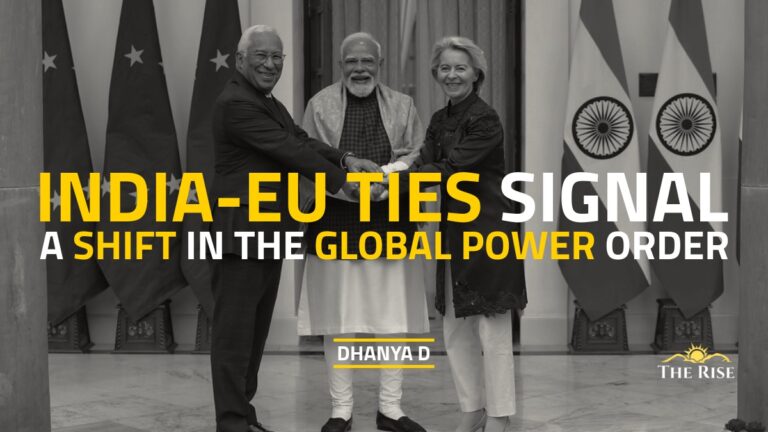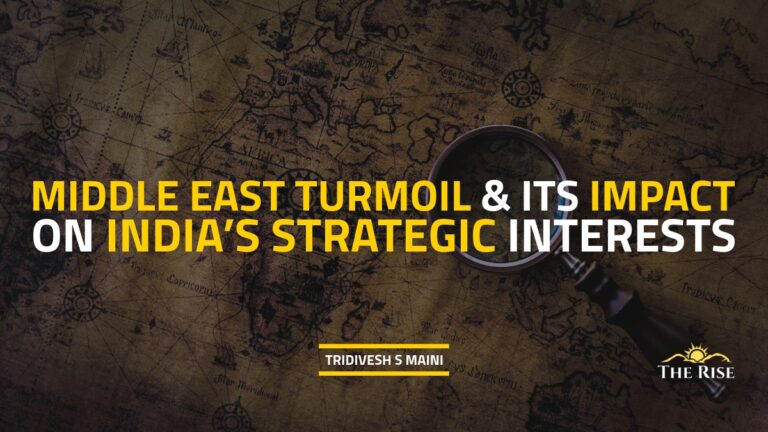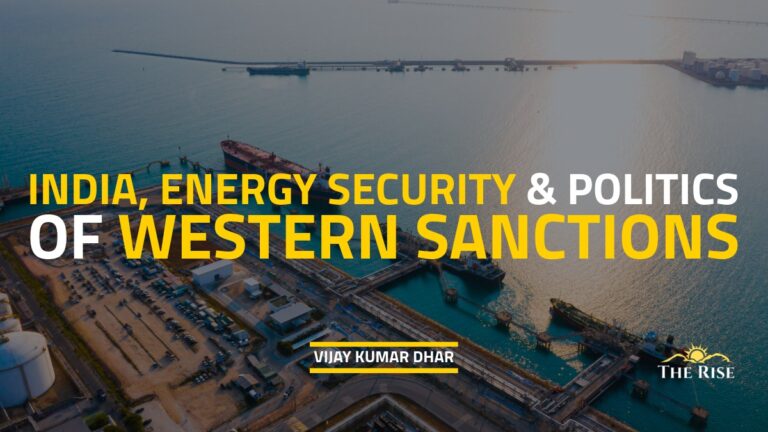Ties between India and Pakistan are complex. Dictated by geopolitical factors and domestic politics, it is tough for any third country to really bring about a dramatic change in the short run. In recent years, Gulf countries have been playing an important role in reducing tensions between India and Pakistan.
Pakistan PM Shehbaz Sharif recently said that he was keen to work towards improving relations with India. In an interview with Dubai-based Al Arabiya TV, he said: “We have had three wars with India, and they have only brought more misery, poverty, and unemployment to the people. We have learned our lesson and want to live in peace with India provided we are able to resolve our problems”
The Pakistan PM also said that even if both countries are ‘not neighbours by choice’, they need to live amicably and need to stop wasting their resources. Sharif during his interview said that both India and Pakistan should sit across the table, and discuss “burning issues” like Kashmir. Since the revocation of Article 370 in Jammu and Kashmir, in August 2019, the already strained ties between New Delhi and Islamabad have further deteriorated. Since 2021, there have been some indicators, that both sides are seeking to reduce strains though there has been no substantive progress toward breaking the deadlock between both countries.
It would be pertinent to point out, that Pakistan PMO while commenting in the context of Sharif’s interview stated that talks would be conditional to India reversing its action of August 2019 where it revoked the special status of Jammu and Kashmir. Sharif, on the other hand, during his interview with Al Arabiya TV had not set any pre-conditions for engaging with India.
Also Read: Saudi Arabia and UAE: Playing the Balancing Act
Since 2021, there have been some indicators, that both India and Pakistan are seeking to reduce strains though there has been no substantive progress toward breaking the deadlock between both countries.
Pakistan reeling under multiple domestic crises
Sharif’s statement comes when Pakistan’s economy is in the doldrums. While the country was already facing external debts, the floods in October 2022 have only worsened the economic conditions with rising inflation and low foreign exchange reserves. The floods impacted over 30 million people with over 1700 individuals losing their lives, and are supposed to have caused damage to the Pakistan economy to the tune of $30 Billion with Sindh being the most affected province.
The country is facing a severe flour crisis and because of the shortage of wheat, the prices have skyrocketed in different parts of the country. Flour in Karachi is being sold at Rs. 160 per kilogram, while in Islamabad, Peshawar and Khyber Pakhtunkhwa (KPK) it is being sold at much higher prices.
There have also been stampedes in Sindh and several instances of clashes have been reported between people over subsidized power. The state of the economy is not the only challenge for Sharif, Pakistan is also facing a security threat from the Tehreek-E-Taliban Pakistan (TTP).
You May Like: Political Turmoil and Strained Ties with the West: A Double Whammy for Pakistan’s Economy
Gulf countries: The peacemakers
Days before his comments on the improvement of ties with India, Sharif had also stated that it is ‘shameful’ for a nuclear power like Pakistan to beg for external assistance. The Pakistan PM has sought assistance from China, United Arab Emirates (UAE), and Saudi Arabia. Earlier this month, the Pakistan PM had also said that several countries had pledged assistance to the tune of $9.7 billion to help Pakistan in rebuilding the country in the aftermath of the floods.
During the interview with Al Arabiya TV, Shehbaz Sharif made another significant point. He said that UAE has good relations with both New Delhi and Islamabad and is in a good position to “..bring the two countries on the talking table”.
Ties between India and Pakistan are complex and are dictated by geopolitical factors and domestic politics and it is tough for any third country to really bring about a dramatic change in the short run. In recent years, Gulf countries have been playing an important role in reducing tensions between India and Pakistan. In 2019, Saudi Arabia along with UAE and US played an important role in the release of Indian Air Force (IAF) wing commander Abhinandan Varthaman. In 2021, according to a Bloomberg report, UAE is supposed to have played an important role in the ceasefire agreement between India and Pakistan. UAE had worked out a ‘roadmap for peace’ between both countries according to the report. This included the resumption of trade between both countries. While in April 2021, then Pakistan PM Imran Khan first gave the go-ahead to Pakistan to import essential commodities – cotton and sugar — from India, he reversed his decision after resistance from his cabinet colleagues.
The fact that Saudi Arabia and UAE share robust ties with both India and Pakistan makes it easier to act as intermediaries. While the US has been seeking to reduce tensions between both countries, there is greater resistance to this in Pakistan – especially after the deterioration of ties between Pakistan and the US in recent times.
Over the past few years, Saudi Arabia and UAE have been nudging India and Pakistan towards engagement and reduction of hostilities.
In conclusion, India-Pakistan ties are dictated by multiple factors as has been mentioned earlier. It is highly unlikely that both countries will take any significant steps at this stage towards the improvement of ties at least in the short run – though there is scope for the resumption of bilateral trade. Over the past few years, Saudi Arabia and UAE have been nudging India and Pakistan towards engagement and reduction of hostilities. As mentioned earlier, the changing geopolitical landscape has paved the way for both Gulf countries to act as peacemakers. It remains to be seen whether at this point of time, when there are numerous global and economic challenges, UAE or Saudi Arabia will step in and pitch for the normalization of relations between both countries.
Disclaimer: The views expressed in this article are of the author solely. TheRise.co.in neither endorses nor is responsible for them. Reproducing this content without permission is prohibited.
About the author
Tridivesh Singh Maini is a New Delhi-based Policy Analyst. He is faculty member of OP Jindal Global University, Sonepat, Haryana.

